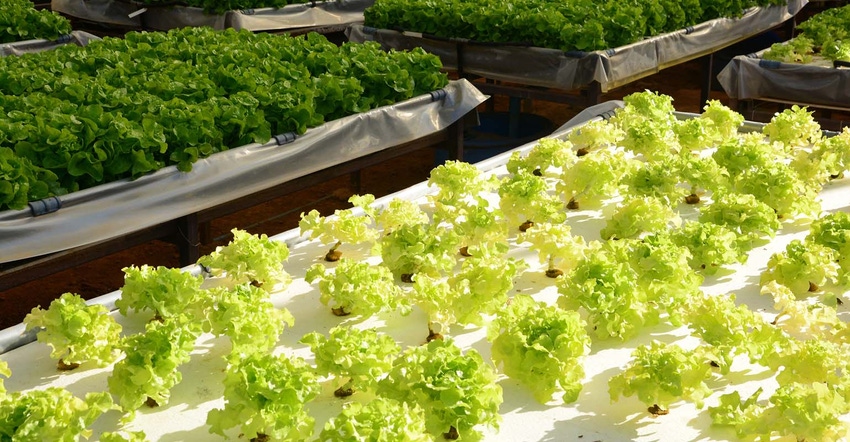February 5, 2018

On Jan. 25, 2018, USDA’s Agricultural Marketing Service released on update on the status of organic hydroponics, aquaponics and aeroponics.
At its fall public meeting, the National Organic Standards Board heard testimony about hydroponic, aquaponics and aeroponic operations.
What is the status of hydroponic, aquaponics and aeroponic operations?
Certification of hydroponic, aquaponic, and aeroponic operations is allowed under the USDA organic regulations, and has been since the National Organic Program began. For these products to be labeled as organic, the operation must be certified by a USDA-accredited certifying agent, and maintain compliance with the USDA organic regulations.
The NOSB has recommended prohibiting aeroponic systems in organic production. USDA will consider this recommendation; aeroponics remains allowed during this review.
What is the Organic Farmers Association saying about this certification?
The Organic Farmers Association is raising concern with USDA’s recent statement that “Certification of hydroponic, aquaponic and aeroponic operations is allowed under the USDA organic regulations, and has been since the National Organic Program began,” labeling this action as revisionist history, and an incorrect interpretation of organic law.
“The USDA has several times in the past sought guidance from the National Organic Standards Board on the advisability of allowing hydroponic production to be certified organic,” said Francis Thicke, OFA policy committee chair and outgoing NOSB member. “This issue is far from settled.”
The association pointed out that in 2010 the NOSB, in a 14 to 1 vote, recommended that hydroponic production not be allowed to be certified organic, stating “systems of crop production that eliminate soil from the system, such as hydroponics or aeroponics cannot be considered as example of acceptable organic farming practices…due to their exclusion of the soil-plant ecology intrinsic to organic farming systems and USDA/NOP regulations governing them.”
The USDA National Organic Program did not follow through on that NOSB recommendation. However, most USDA-accredited certifying agencies have avoided certifying hydroponic operations because of the long-standing requirement—rooted in the Organic Foods Production Act —that organic production must be in the soil.
“There are no federal standards for certifying hydroponic production as organic,” said Jim Riddle, OFA steering committee chair and former NOSB member.
Organic Farmers Association said OFPA—the enabling legislation that created the National Organic Program—indicates that organic production must be soil-based. Quoting the Act, “An organic plan shall contain provisions designed to foster soil fertility, primarily through the management of the organic content of the soil through proper tillage, crop rotation, and manuring.”
Further, Organic Farmers Association asserts that no legal justification accompanied USDA’s recent position of unconditional allowance for organic certification of hydroponic production.
Related articles:
A battle between the those who believe that all organic production starts with living soil and those who see growing in soilless media as a viable alternative has been waged for several years. – Growing Produce
The issue of whether hydroponic operations should be certified as organic has been debated since 1995. – The Packer
Source: USDA AMS, Organic Farmers Association
You May Also Like




